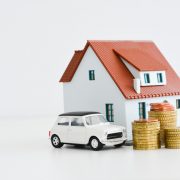The Impact of Self-Driving Cars on Real Estate
The future is now. Driverless cars are not only coming soon they are already here! Tesla and Mercedes Benz Car offer some self-driving technology in models for sale right now. The state of California has licensed 27 companies to test driverless vehicles on public roads. Undoubtably, self-driving cars will have an major impact on world as transportation costs will go down significantly by eliminating the cost of the driver. The changes brought to the world by the advent and popularization of self-driving vehicles has begun and will certainly affect the housing and real estate markets. There are still many exciting unknowns.
Here are 3 ways that driver-less cars could change real estate.
1. Ride sharing. One of the predictions that is being made about the widespread adoption of driver-less vehicles is that this will change the way we view vehicle ownership. Instead of owning one (or several) cars, many people will opt to instead purchase miles on an autonomous vehicle, which can pick them up and drive them wherever they wish to go. This could lead to our housing changing to be less accommodating of vehicle ownership. Owners may forego garages or even driveways, as they find other uses for their square footage.
2. Parking. Large parking garages may vanish on day. Parking lots are often times situated on some very expensive real estate. Particularly in big cities, parking lots could become obsolete faster than we think as more and more people are being dropped off by vehicles. Developers will put in other structures on the spaces previously occupied by parking structures.
3. Fuel. Gasoline is still king but as these newer cars are adopted, what will they run on? Will they be electric? If the vehicle population of the country undergoes a massive shift from gasoline to electric or something else, the countries gas stations as we know it might become obsolete. What will happen with that real estate?
Garages will become a thing of that vast once the vast majority of people stop owning cars. No more giant parking lots at the mall. No more underground parking lots in office buildings. In our lifetime, we might experience younger generations not knowing what a garage is. Owning a car might become a rare luxury like owning a horse.



